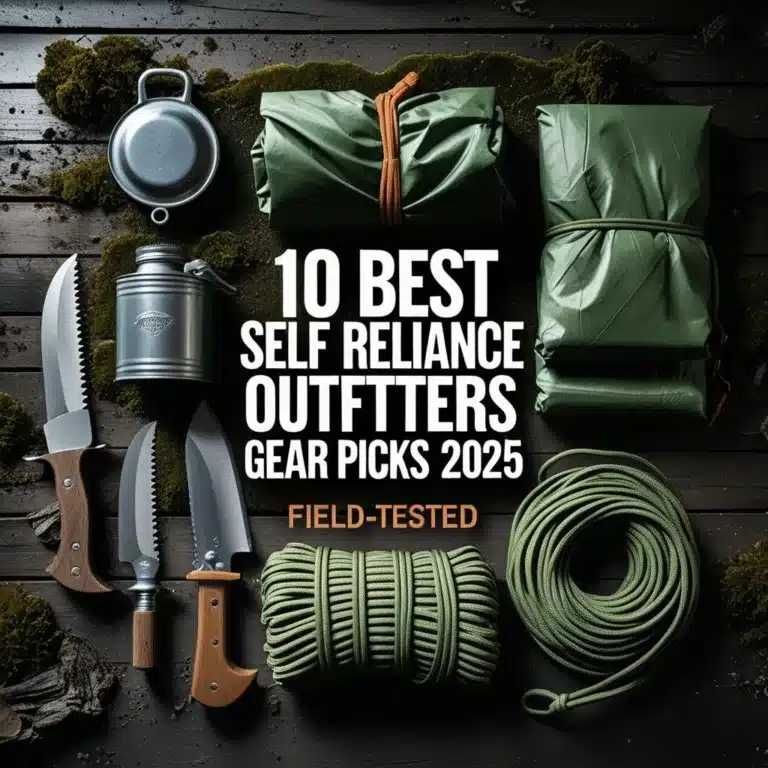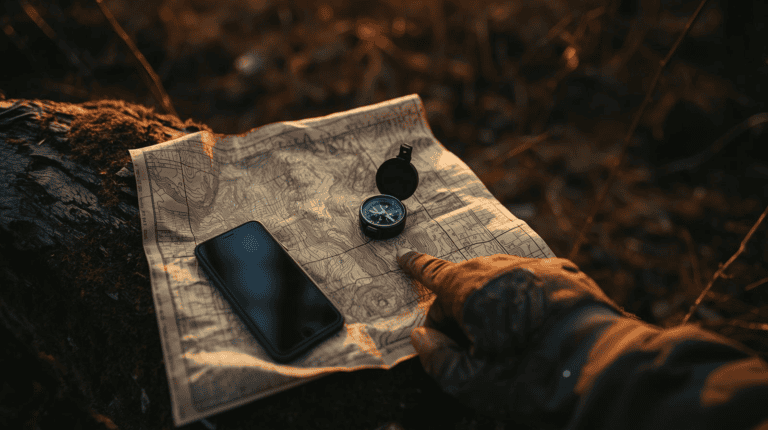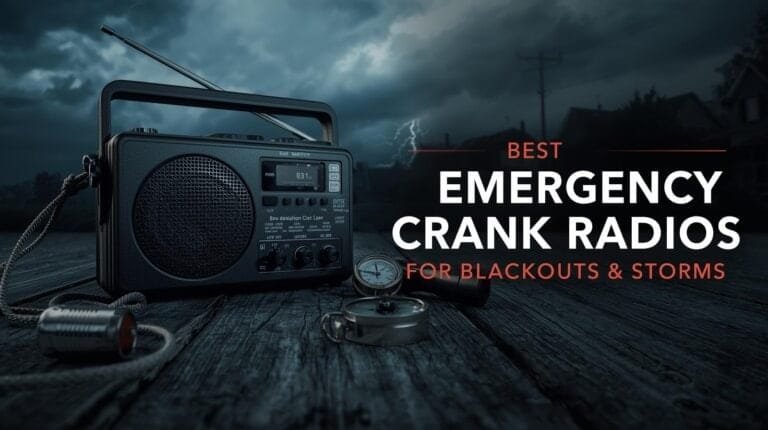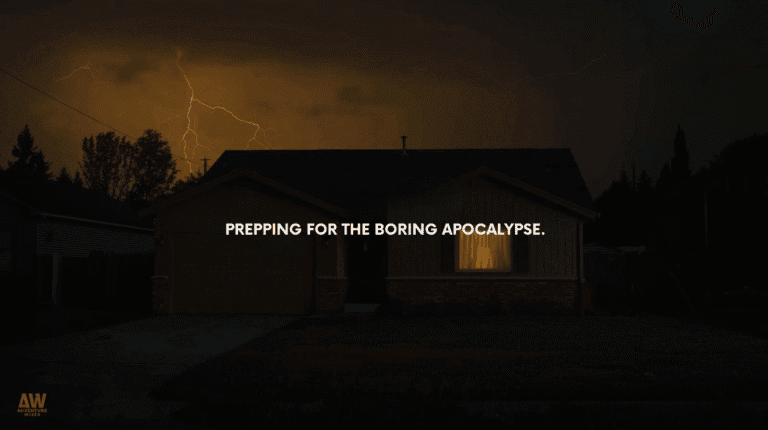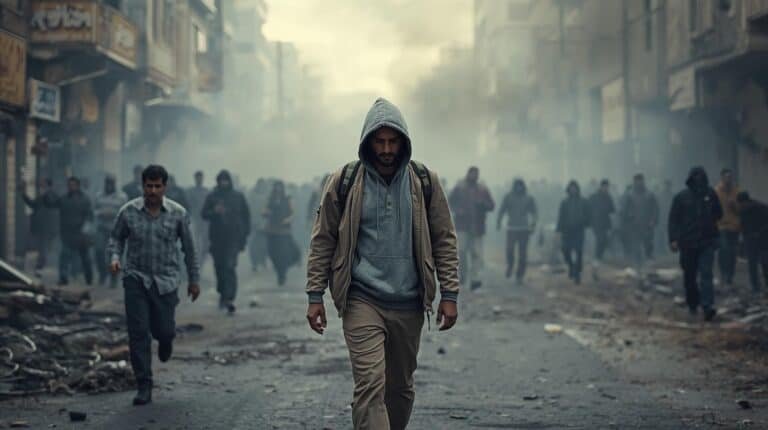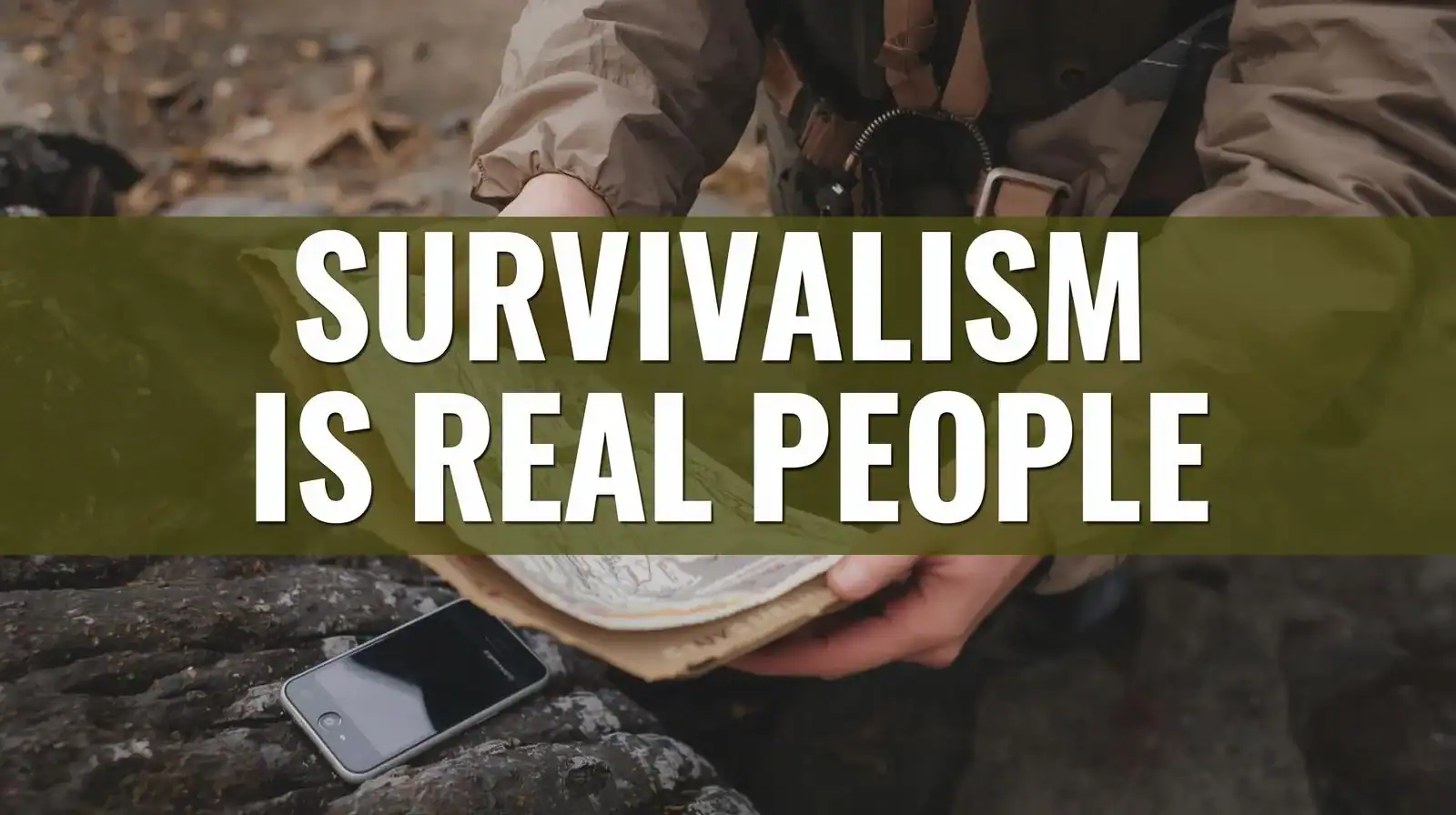
Survivalism for Real People: Why Being Prepared Just Makes Life Better
Okay, let’s get one thing straight—when I say “survivalism,” I’m not talking about my Uncle Dave who has a bunker full of canned beans and keeps asking when I’m going to “wake up to the truth.” I’m talking about something way more practical and honestly, way more fun.
Real survivalism? It’s just being the person who doesn’t completely lose their mind when their phone dies on a hike, or when the power goes out during a dinner party, or when their flight gets canceled and they’re stuck in Denver overnight. It’s about rolling with life’s curveballs instead of striking out every time.
The Day I Learned I Wasn’t As Smart As I Thought
So there I was in 2019, feeling pretty smug about my shiny new GPS watch. I’d convinced three friends to join me for what I confidently called a “super easy day hike” in the Cascades. You know where this is going, right?
Four hours later, we’re basically staring at a wall of rock, my fancy watch is deader than my college GPA, and my friends are shooting me the kind of looks usually reserved for people who suggest pineapple on pizza. That’s when Sarah—bless her practical soul—pulls out an actual paper map and compass like she’s some kind of time traveler from 1985.
“You brought a map?” I asked, probably sounding as incredulous as I felt.
“Always do,” she shrugged, already getting her bearings. Twenty minutes later, we were back on track, and I was mentally adding “learn to use a compass” to my weekend to-do list, right between “do laundry” and “question all life choices.”
That day taught me something important: technology is awesome until it isn’t, and the people who remember the old ways aren’t paranoid—they’re just smarter than the rest of us.
What Survivalism Actually Looks Like (Spoiler: It’s Pretty Normal)
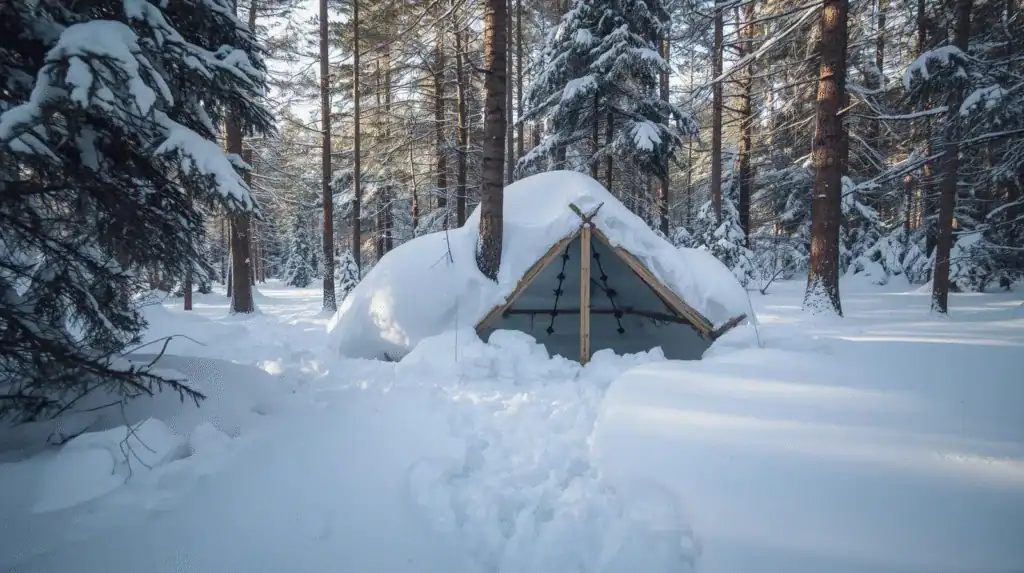
Forget everything you’ve seen in those dramatic survival shows where people eat raw fish and build helicopters out of bamboo. Real survivalism is more like… being a really good Boy Scout, but without the badges and awkward camping songs.
It’s about having what I call “calm confidence“—that thing where life throws you a weird situation and instead of panicking, you think, “Huh, interesting problem. Let’s figure this out.”
My friend Jake nailed this last winter. He was backcountry skiing when a whiteout hit out of nowhere. Instead of freaking out (which, let’s be honest, would have been my first instinct), he remembered his training, dug himself a snow cave, and basically had an impromptu camping adventure. Six hours later, when the storm cleared, he skied out with a great story and all his fingers intact.
The kicker? He’d practiced building snow shelters in his backyard the month before, just because he was curious. Not because he was preparing for the apocalypse—just because he wanted to know how.
That’s the difference between healthy preparedness and whatever my Uncle Dave is doing in his basement.
The Skills That Actually Matter (No Bear Wrestling Required)
Here’s the thing about most survival situations—they’re way more boring than TV makes them seem. You’re not going to be fashioning spears to hunt wild boar. You’re going to be dealing with basic human needs in temporarily annoying circumstances.
The Rule of Threes changed how I think about priorities: three minutes without air, three hours without shelter in bad weather, three days without water, three weeks without food. When everything feels urgent, this helps you figure out what’s actually important. (Hint: your Instagram notifications don’t make the list.)
Fire: The Ultimate Mood Booster
I used to think fire was just for s’mores and looking cool at beach parties. Then I learned it’s basically a Swiss Army knife that gives off heat. Fire purifies water, cooks food, signals for help, and—this is important—makes you feel like a capable human being instead of a lost tourist.
The first time I got a fire going with just a bow drill, I felt like I’d discovered actual magic. Which is ridiculous because humans have been doing this for literally thousands of years, but still. There’s something primal and satisfying about creating fire from basically nothing.
Water: It’s Everywhere and Nowhere
Water is tricky. You can see it everywhere—streams, lakes, that puddle outside your tent—but unless you enjoy surprise intestinal adventures, you need to make it safe first. Boiling works great (one minute at sea level, longer if you’re up high). Water purification tablets are like insurance policies but smaller. And here’s a cool trick: clear plastic bottles can actually purify water if you leave them in direct sunlight for about six hours. Science is wild.
Shelter: Your Portable Comfort Zone
I’m not talking about building a log cabin here—I mean creating a little bubble of “not terrible” around yourself. The best shelter I ever made was during an unexpected snowstorm in Olympic National Park. Just a tarp, some rope, and a conveniently placed fallen tree. My hiking buddy and I stayed warm and dry while nature threw a tantrum around us. We felt like wilderness ninjas.
Navigation: Because Getting Lost Sucks
GPS is fantastic until your phone decides to take a nap or you wander into one of those mysterious dead zones. A map and compass don’t need charging, don’t get software bugs, and have been working perfectly since before your great-grandparents were born.
Plus, there’s something deeply satisfying about figuring out where you are using just landmarks and basic math. It’s like being a detective, but the case is “Where the heck am I and how do I get back to my car?”
City Survivalism: Because Urban Jungles Can Be Actual Jungles
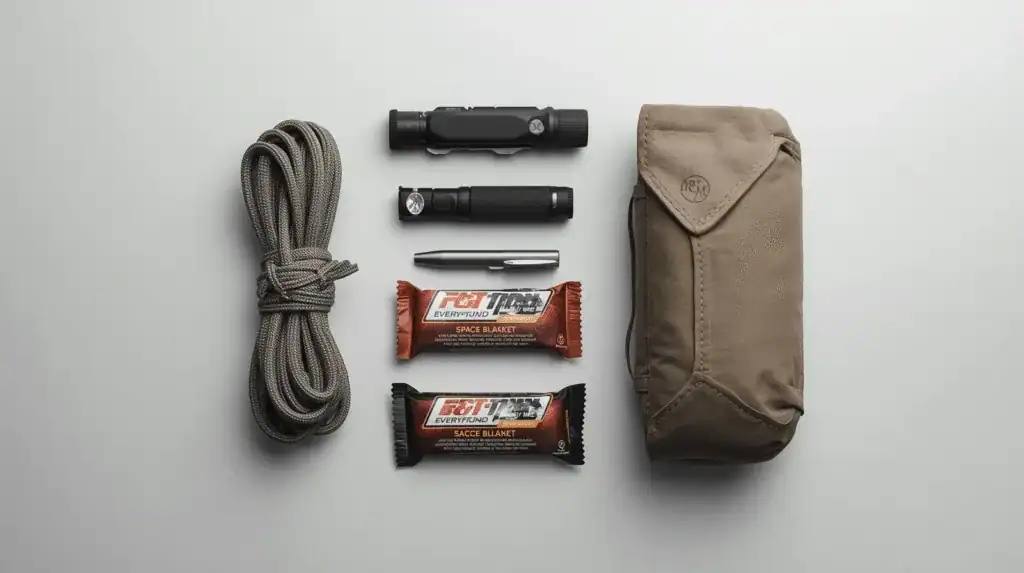
Here’s something outdoor magazines don’t like to admit: you’re way more likely to need survival skills in a city than in the wilderness. Power goes out, weather gets weird, flights get canceled, and suddenly your perfect weekend becomes an episode of “How Am I Sleeping in This Airport Terminal?”
When Hurricane Sandy hit New York, the people who did best weren’t necessarily the ones with the most stuff—they were the ones with the most backup plans. Multiple ways to charge devices, different routes home, cash for when credit cards stop working.
I keep a small kit in my truck that’s saved me more times than I want to admit: basic first aid stuff, a hand-crank flashlight (because batteries are apparently optional for flashlights I actually need), some energy bars, and—this is key—an actual paper road atlas. Sometimes your phone thinks you’re in the middle of the ocean when you’re clearly in a Walmart parking lot in Ohio.
The best urban survival skill, though? Just paying attention. Noticing where the exits are, trusting that little voice in your head when something feels off, and remembering that your instincts are usually smarter than your rational brain wants to admit.
Gear That’s Actually Worth Carrying
The survival gear world is basically designed to separate you from your money by convincing you that you need seventeen different ways to start a fire. Here’s the truth: you need maybe three things that work really well, not thirty things that sort of work.
Paracord is magical rope that can become shoelaces, fishing line, emergency dental floss, or whatever else you need. A decent multi-tool replaces half your toolbox. A headlamp keeps your hands free while making you feel like a very practical spelunker. An emergency space blanket weighs nothing and reflects most of your body heat back at you.
But honestly? The best survival tool is just knowing stuff. You can lose your gear, but you can’t lose what you know. Skills don’t weigh anything, they work everywhere, and they’re impossible to break.
The Real Reason to Learn This Stuff
Here’s the secret about survivalism: it’s not really about surviving. It’s about not being afraid to live.
When you know you can handle uncertainty, you stop running away from it. You take that weird trail that’s not on any map. You book that last-minute trip to somewhere you can’t pronounce. You say yes to adventures that used to seem too scary or unpredictable.
Think about Ernest Shackleton. His ship got crushed by ice in Antarctica, and his crew was stuck there for almost two years. But because he was prepared—mentally, physically, and practically—he turned what should have been a disaster into one of the greatest adventure stories ever told. Nobody died. Nobody gave up. They just kept solving problems until they solved their way back home.
That’s what preparedness really gives you: not the guarantee that nothing will go wrong, but the confidence that when something does go wrong—and let’s face it, something always does—you’ll be the person everyone wants on their team.
So yeah, learn to start a fire. Figure out how a compass works. Practice some basic knots. Not because the world is scary, but because it’s amazing and unpredictable and full of possibilities. And the best way to explore those possibilities is with the quiet confidence that comes from knowing you can handle whatever weirdness comes next.
The goal isn’t just to survive your adventures—it’s to actually enjoy them, even when they don’t go according to plan. Especially when they don’t go according to plan.
Heads-Up, Fellow Preppers: Some links in this post are sponsored or affiliate links. If you click and buy, I may earn a small commission—enough to keep my peanut butter stash stocked and maybe sneak in an extra can of chili for the bunker.

